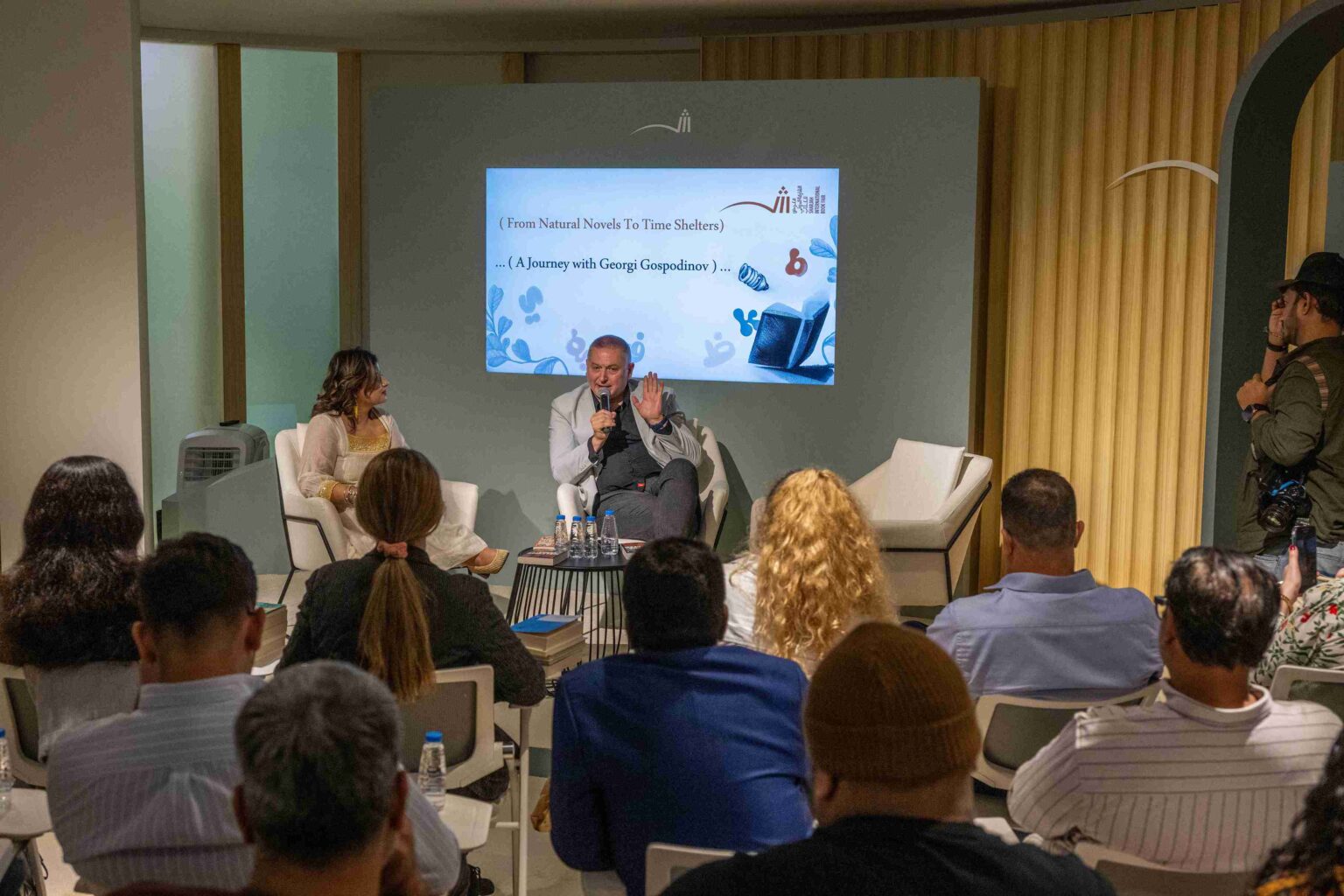Booker-winning Bulgarian author explores time, memory and the
human spirit during a Sharjah International Book Fair discussion
Esteemed Bulgarian novelist, poet and playwright Georgi Gospodinov left his Sharjah International Book Fair (SIBF) audience enriched with reflections on themes that characterise his globally acclaimed works – memory, time and human resilience.
During a dialogue with journalist Anamika Chatterjee, he shared his fascination with preserving memories, explaining, “In my writing, I aim to rescue forgotten moments, allowing readers to experience time beyond the constraints of the present.”
He described nostalgia with its Greek roots, nostos and algos—the pain of returning—as something deeply personal, however, potentially perilous when it becomes collective. “Nostalgia can transform into propaganda,” he warned, “when entire societies attempt to return to an idealised past.”
The 56-year-old then went on to explore the notion of “nostalgia for a place we’ve never visited,” saying: “We also often feel nostalgia for things that never happened to us. These places and experiences linger more profoundly in our minds.”
Reflecting on his own life, he shared how “as a child, my parents spoke of Paris as the most beautiful place although they never visited it”. “In reality they couldn’t have because of the political situation then. Years later, when I finally visited and called my father from the Champs-Élysées to tell him he didn’t find it as beautiful as they had described, he wouldn’t believe me,” Gospodinov emphasised how the imagined beauty of places we’ve never seen sometimes surpasses reality.
Known for works like The Physics of Sorrow and Time Shelter, which won the International Booker Prize in 2023, Gospodinov gave his audience a taste of his unique narrative style that blends poetry and fiction to address themes of memory, time and existential reflection.
When asked how winning the Booker changed him, if at all, he said: “It has opened unexpected doors, allowing me to meet people I’d never have connected with otherwise. One of the most rewarding changes is seeing an increased interest from international publishers in Bulgarian and Balkan writers. It’s as if these once-overlooked voices are finally being invited into the global conversation, giving our stories the audience they’ve long deserved.”
Advice for emerging writers? “Don’t be afraid to be sensitive and curious. Keep a notebook—writers work 24/7, listening to stories being told around them. When you’re on the street, be an ear for those tales. It’s so important to have that openness. And, above all, have the courage to tell your personal story. Your voice and your experiences matter in ways only you can express.”
The talk concluded with a book signing, where Gospodinov connected personally with fans, further underscoring his impact on global literature.

